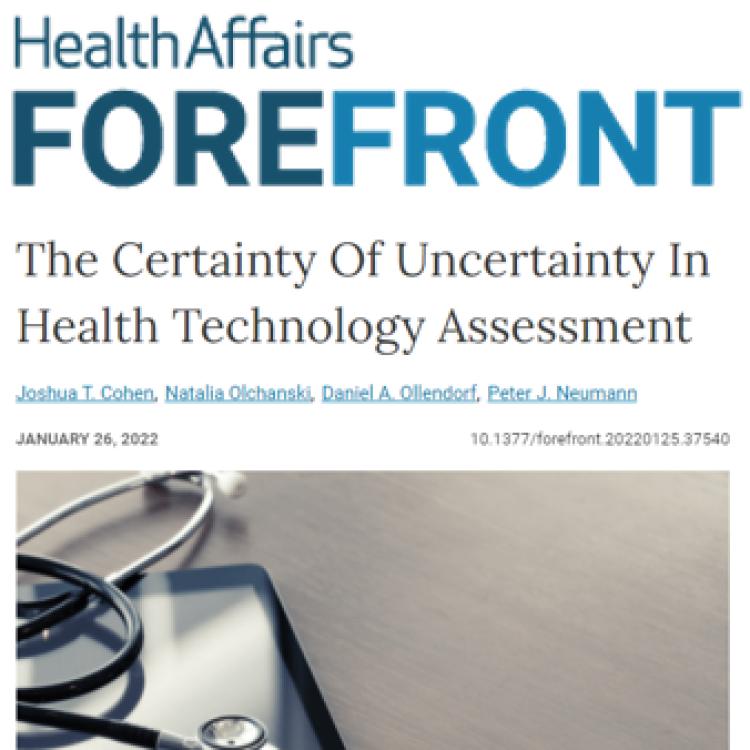 Featured
Featured
 It’s a simple fact. We’re all different. Our health care needs are too.
It’s a simple fact. We’re all different. Our health care needs are too.
Though biopharmaceutical innovation continues to open new doors in treating patients with better precision based on their health needs, health benefit design has not kept up in ensuring access to treatments based on individual health.
To support the ongoing discussion about patient differences and the need for health benefit design to reflect these differences, NPC recently updated its resource The Myth of Average: Why Patient Differences Matter. Led by NPC Vice President of Health Services Research Kimberly Westrich, MA, and Research Consultant Lisabeth Buelt, MPH, the booklet aims to help patients, health care providers, insurers and other decision-makers better consider individual patient differences when navigating the complexities of health care and insurance.
To access the latest research and analysis on health benefit design, visit our resource page on Building Better Benefits.
 NPC Highlights
NPC Highlights

The Certainty of Uncertainty in Health Technology Assessment
In an article published in Health Affairs Forefront, the Center for the Evaluation of Value and Risk in Health (CEVR) at Tufts Medical Center describes the results of an NPC-sponsored project exploring the potential flaws in how health technology assessments (HTAs) identify and report on uncertainty when analyzing new technologies for their costs, potential impact on patient outcomes, and other societal factors. Lead author Joshua Cohen, PhD, notes that when HTAs “fail to help decision-makers appreciate the full range of possible outcomes, HTAs could contribute to poor decision-making and, ultimately, put high-value treatments out of reach for patients....”

Value Assessment Has a ‘Leaky Bucket’ Problem
How do we determine the value of innovative treatments that can be curative or life-changing for patients? In another article in Health Affairs Forefront, NPC’s outgoing Chief Science Officer Robert W. Dubois, MD, PhD, and Ms. Westrich outline the challenges in assessing the value of new treatments and propose a framework that helps better define, measure and determine how to allocate value. The article explores how patient access to treatments can be affected if value assessment fails to reflect the full range of treatment impact, like productivity or caregiver burden.

CBO Updates Show How Proposed Legislation Could Harm Patient Access to Care
The Congressional Budget Office (CBO) issued two updates in January related to drug pricing. One estimates that proposed Medicare price controls would reduce the number of new drugs coming to market by 10%, illustrating the impact of government price setting on innovation. The other CBO update shows that while the use of prescription medicines has increased, drug spending as a percent of overall health spending has decreased, partly due to greater availability of generic medicines. If policymakers implement price controls that dampen innovation, it will carry downstream consequences for generic competition and treatment options for patients. The CBO updates reflect key issues outlined by NPC President and CEO John M. O’Brien, PharmD, MPH, in his recent Chain Drug Review commentary on fostering a more informed drug pricing conversation.
 Mark Your Calendar
Mark Your Calendar
Webinar: Building Better Benefits, Rethinking Value-Based Benefit Design
February 1, 2022 | 12:00 pm - 1:15 pm
This webinar is the first of two focused on value-based benefit design, supported by NPC and led by the National Alliance of Healthcare Purchaser Coalitions (National Alliance). The discussion will focus on the ways employers and payers are working to align benefit design to incentivize value, address equity concerns and balance affordability challenges.
Webinar: Better Value, Smarter Deductibles in HSA-HDHPs
February 15, 2022 | 12:00 pm - 1:15 pm
At the second webinar hosted by the National Alliance, panelists will discuss how payers and employers can achieve better value from high-deductible health plans by leveraging good practices identified by peers.
American Association of Colleges of Pharmacy Interim Meeting – “INvigorate 2022”
February 19 - 22, 2022
On Saturday, February 19, 2022, at 4:00 pm, NPC's John O’Brien will help kick off "INvigorate 2022," the annual meeting for the American Association of Colleges of Pharmacy. During the session, he will discuss how pharmacists can increase their impact in the health care landscape for patient benefit.
 ICYMI
ICYMI
- NPC Welcomes New CSO – Sharon Phares, PhD, MPH, has been appointed NPC’s new Chief Scientific Officer. Dr. Phares will lead NPC’s research strategy and oversee our health policy research, replacing Dr. Dubois, who is retiring at the end of February. Follow her on Twitter at @SEPphares.
- NPC Submits Comments to CMS – NPC submitted comments to the Centers for Medicare & Medicaid Services (CMS) regarding the proposed Notice of Benefit and Payment Parameters for 2023. The comments highlighted the importance of standardized health plans, non-discrimination in essential health benefits and health benefit design, limits on cost-sharing, and gathering more granular data to understand health disparities.
- NPC’s Kimberly Westrich Talks Benefit Design – The American Journal of Managed Care posted a four-part video series with NPC’s Kimberly Westrich on value-based care and good practices for #BuildingBetterBenefits, covering topics including incentivizing value-based care, fallacies in value-based benefit design, strategies for constructing value-based benefits and micro- and macro-level approaches to improving value-based benefit design.
- Report Illustrates Barriers to Fair Access - The Institute for Clinical and Economic Review (ICER) recently highlighted the hurdles patients face in accessing treatments, like the use of formulary tiers and step therapy protocols, in their report Assessment of Barriers to Fair Access. Though the authors noted the limitations of their report, it brings attention to persistent access barriers and the need for better and more transparent data to evaluate existing payer
